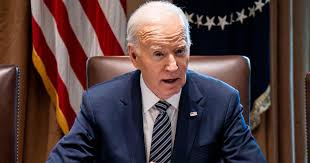President Joe Biden has taken a significant step to assert executive privilege over recordings of his interview with special counsel Robert Hur. This move comes as House Republicans escalate their efforts to hold Attorney General Merrick Garland in contempt for refusing to hand over the files. This action marks a major escalation in the ongoing dispute between the House GOP and the executive branch.
The Context: Biden’s Interview and Executive Privilege
The Nature of the Dispute
The recordings in question pertain to Biden’s interview with special counsel Robert Hur. House Republicans are keen on accessing these tapes, arguing that they contain valuable information that extends beyond what a written transcript could offer. However, the Department of Justice (DOJ) has raised concerns about the political motivations behind the request and the need to protect certain privacy considerations.
Hur’s Report and Biden’s Reaction
In his final report, Robert Hur described President Biden as a “well-meaning, elderly man with a poor memory.” This characterization has been contested by Biden, who disputes the notion that his memory is as compromised as suggested. Republicans have seized upon Hur’s description, insisting that the audio recordings will provide deeper insights.
The Legal and Political Implications
Executive Privilege: A Presidential Power
Executive privilege is a presidential power used to withhold information in the public interest. Biden’s decision to invoke this privilege over his interview tapes is a clear indication of the sensitive nature of the contents and the potential implications of their release.
Contempt Proceedings Against Garland
House Republicans are moving forward with contempt proceedings against Attorney General Merrick Garland. The House Oversight and Judiciary committees are holding markups on reports recommending a contempt of Congress resolution against Garland for his non-compliance with a congressional subpoena. Should these resolutions pass through the committees, they will be brought before the entire House for a vote.
Republican Motivations and DOJ Concerns
Republican Arguments
Republicans argue that the recordings of Biden’s interview could shed light on significant aspects of his presidency and decision-making processes. They believe that the tapes might reveal discrepancies or additional context not captured in the written transcripts.
DOJ’s Privacy Concerns
The DOJ, on the other hand, maintains that the House GOP’s request for the tapes is driven primarily by political motives. They argue that releasing the recordings could infringe on privacy rights and set a problematic precedent for future executive-branch communications.
The Escalating Tensions
Political Ramifications
The ongoing battle over the interview tapes is intensifying partisan tensions in Washington. The confrontation between the legislative and executive branches over access to sensitive information is a classic power struggle that could have lasting implications for interbranch relations.
Public Perception and Media Coverage
The public’s perception of this dispute is being shaped by extensive media coverage. Each side is leveraging the situation to bolster its narrative, with Republicans emphasizing transparency and accountability, and Democrats focusing on the preservation of executive privilege and the protection of sensitive information.
Key Moments and Developments
Committee Markups and Resolutions
The House Oversight and Judiciary committees’ markups of the contempt resolution are critical steps in the legislative process. These sessions involve detailed discussions and potential amendments to the proposed resolution before it can proceed to the full House for a vote.
Potential House Floor Vote
If the resolutions pass out of the committees, the next step is a vote by the entire House of Representatives. The timing of this vote remains uncertain, but it represents a significant milestone in the ongoing dispute.
Legal and Constitutional Considerations
Executive Privilege and Congressional Oversight
The invocation of executive privilege raises important legal and constitutional questions about the balance of power between the executive and legislative branches. While executive privilege is an established doctrine, its scope and limits are often contested, particularly in the context of congressional oversight.
Implications for Future Administrations
The outcome of this dispute could set precedents that impact future administrations. The way executive privilege is defined and upheld in this case will influence how subsequent presidents handle similar conflicts with Congress.
The assertion of executive privilege by President Joe Biden over his interview recordings with special counsel Robert Hur highlights a complex and contentious issue at the heart of American governance. As House Republicans push for contempt proceedings against Attorney General Merrick Garland, the battle lines are drawn between transparency and the protection of executive communications. The outcome of this dispute will have significant implications for the balance of power between Congress and the presidency, setting important precedents for future interactions between these two branches of government.




